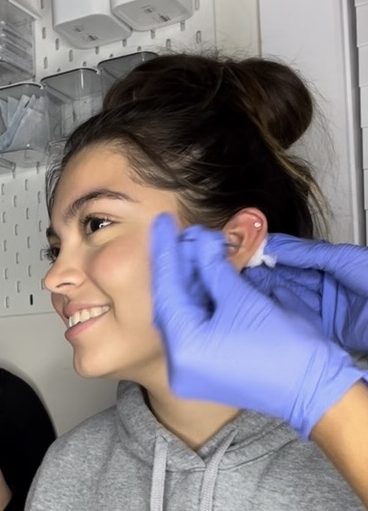High schoolers express themselves in many ways, and some take it to the permanent level of body art by accessorizing themselves with tattoos and piercings. However, what are the laws and regulations around body art for minors?
The National Institute of Health states “Children (typically under 17) cannot provide informed consent. As such, parents must permit treatments or interventions.” Body art falls under this guideline. Additionally, according to Virginia law, a person must be at least 18 years of age to get a tattoo or body piercing, not including “mechanized, pre sterilized ear-piercing system” on the ear or ear lobe, unless the legal guardian gives their consent and is present at the session.
There are several reasons why one must obtain consent of a legal guardian. One is that body art can result in permanent marks that are expensive and painful to remove. Another is that there are health risks associated with body art. For example, HIV and other infections can be spread through the sharing of bodily fluids due to unsanitary practices.
“Sit down with a parent or guardian or whoever to be absolutely sure. Same reason for going to someone who’s not a professional artist in a shop and you’re underage and you’re gonna take a chance and hope that what they’re doing is quality. It’s not worth it,” said vice principal Aaron Schneider.
Although there are legal stipulations around body art in Virginia, “FCPS respects students’ right to express themselves in the way they dress,” as long as it complies with Virginia law and Student Rights and Responsibilities (SR&R) guidelines.
Although FCPS SR&R has no direct reference to tattoos or piercings, there is general guidance against students portraying messages of violence, discrimination, obscenity, and the promotion of alcohol, tobacco, or other drugs.
“I think students should, and staff have the right to express themselves in what makes them feel most comfortable. As long as it falls within the guidelines of SR&R in the way it’s currently outlined, I’m all for it,” said principal Shawn Derose.
Teenage expression is important, but teens should ensure they follow the law not only for legal reasons but also their own health and safety.





